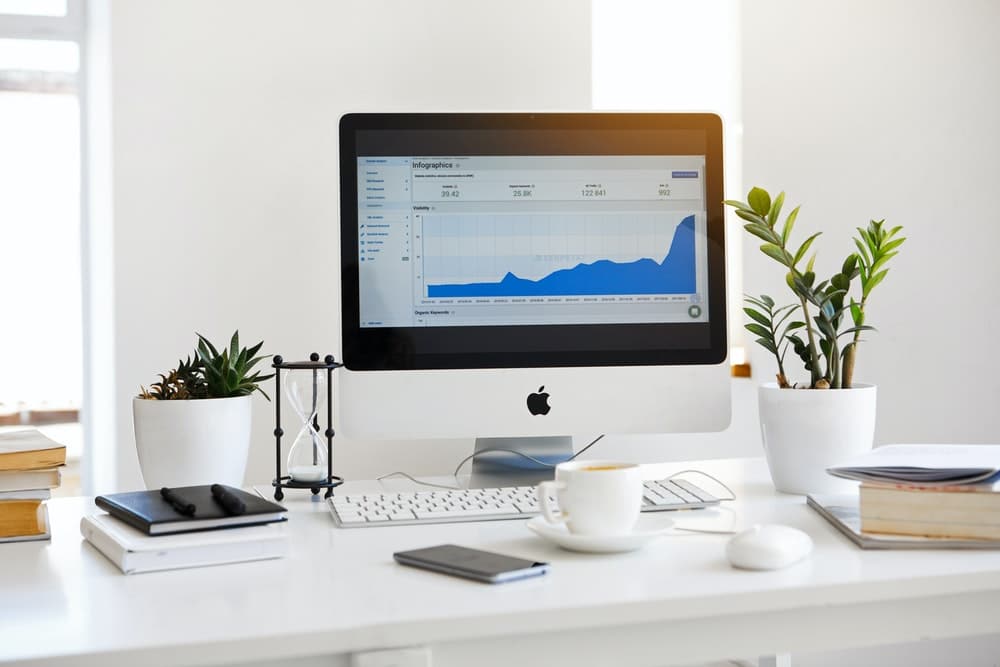Airbnb CEO Brian Chesky recently mentioned that travel after COVID-19 won’t be the same as before. Hearing this, straight from the horse’s mouth, might cause concern for many Airbnb/vacation rental hosts. But it’s not necessarily a bad thing. While he’s indicating that the pattern of traveling is changing, it doesn’t imply that people won’t travel as much nor people will use Airbnb any less.
Airbnb analytics platform Airbtics analyzed 240,000 active Airbnb listings data from Florida, California, New York and Texas states and their booking performances in May and June.
Here are four ways Airbnb hosts can optimize their listings based on the current trends that have arisen during the pandemic:
1. Use the keywords that matter
Due to the increasing concern on personal health and securities, the global pandemic has made hygiene and privacy a priority for vacation rental guests. So, how do you emphasize to prospective guests that those are your top priorities too as a host?
When a user searches for a place to stay on listing sites like Airbnb, the first thing they see is the title. Our analysis showed listing titles with words like “sanitization”, “sanitized”, or “secluded” have more bookings this June than listings without those words. Furthermore, listings with those words had higher occupancy rates than listings with other popular adjectives like “luxury”, “modern”, “bright”, and “historic”.
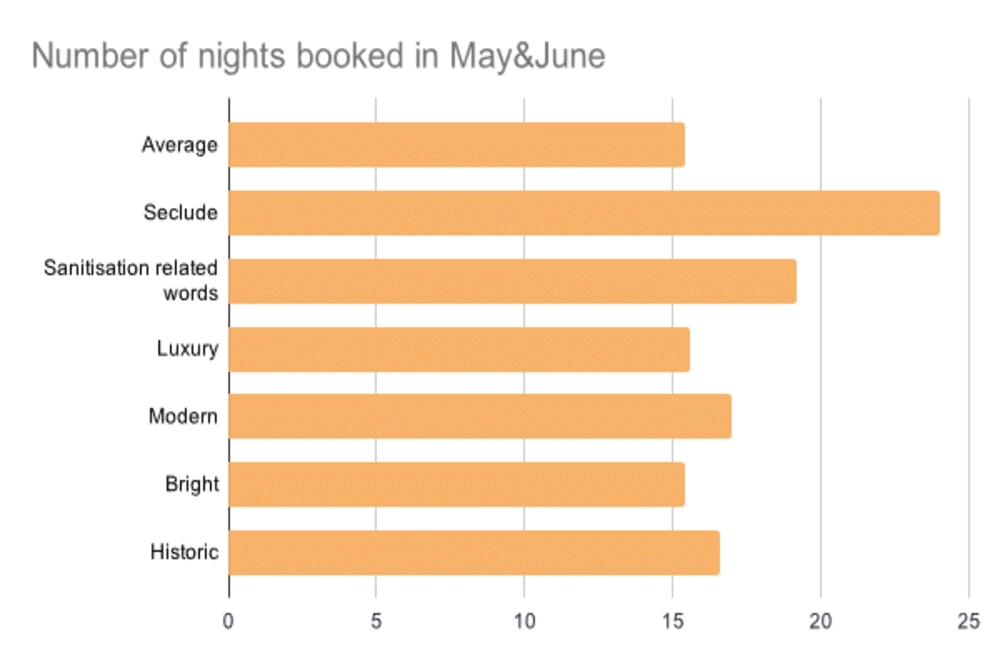
It’s worth noting that only 1 out of 130 listings have words related to sanitization or secludedness.
You can also include:
- Other similar words that give the impression of secludedness:”isolation” and “social distance”.
- Words that emphasize on hygiene such as: “sanitary”, “sterilized”, “sanitised”, “sanitized”, “sterilised”, “deep clean”, “extra clean”, “enhanced clean”, and “cleaning protocol” on your title.
2. Allow self-check-in
If you have been to your Airbnb hosting page recently, you might have noticed that Airbnb is recommending hosts to add “self-check-in” under the opportunities section. But some hosts are reluctant to add it. One of the most frequent reasons for not doing self-check-in is the fear of getting a bad review when Airbnb hosts don’t personally greet guests.
But contrary to popular belief, listings that allow self-check-in have higher review scores in check-in, accuracy and communication sections. Self-check-ins allow Airbnb guests more flexibility of when to check-in.
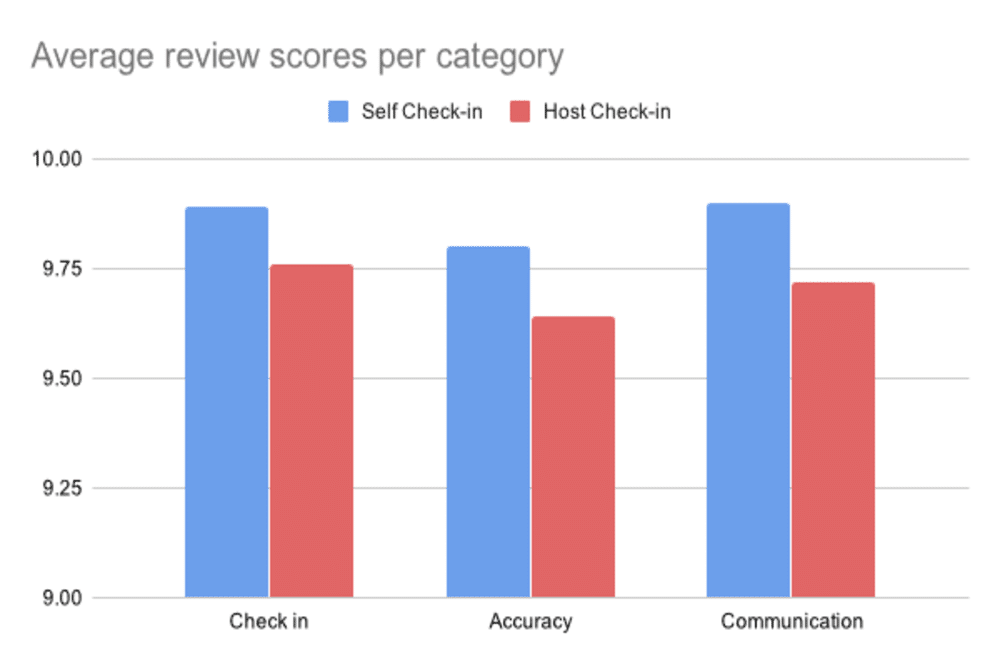
Clear communication is key to smooth self-check-in. One interesting tip is giving guests a recorded instructional video. For example, some hosts film themselves touring the house and showing how to use some of the amenities on the video. Another tip is using automated messages to schedule welcome messages, check-in instructions, and check-out messages. This seems to be particularly useful for hosts with multiple properties.
If you’re considering self-check-in, you might want to invest in one or a combination of the following: a keypad, a lockbox or a smart lock.
3. Make your place ideal for mid-term guests
There have been more mid-term bookings now as opposed to before the pandemic, so make sure your place is set up to accommodate these types of guests too.
Guests looking for mid-term stays typically need a kitchen, washer, dryer, wifi and heating. A laptop-friendly workspace could make your place an attractive option too!
Some Airbnb hosts have been receiving many bookings from office workers working remotely to allow them to work undisturbed. This gives remote workers the personal space they need during the day to work when they have distractions at home.
Also, where possible, give some discounts on a weekly or a monthly stay, since it’s likely that your short-term rental rates are too expensive for someone looking for a mid-term stay.
4. Don’t forget domestic travelers
Our analysis confirmed the steeply increasing number of domestic travelers in comparison to international travelers. This pattern is more obvious outside of the US, since the US already had a relatively high ratio of domestic Airbnb guests pre-COVID.
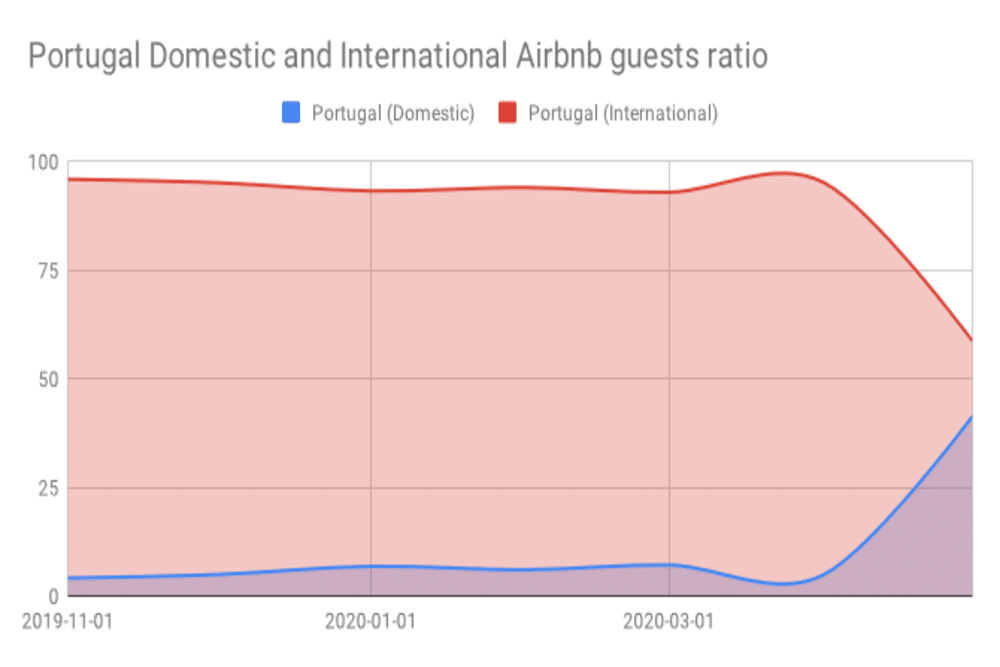
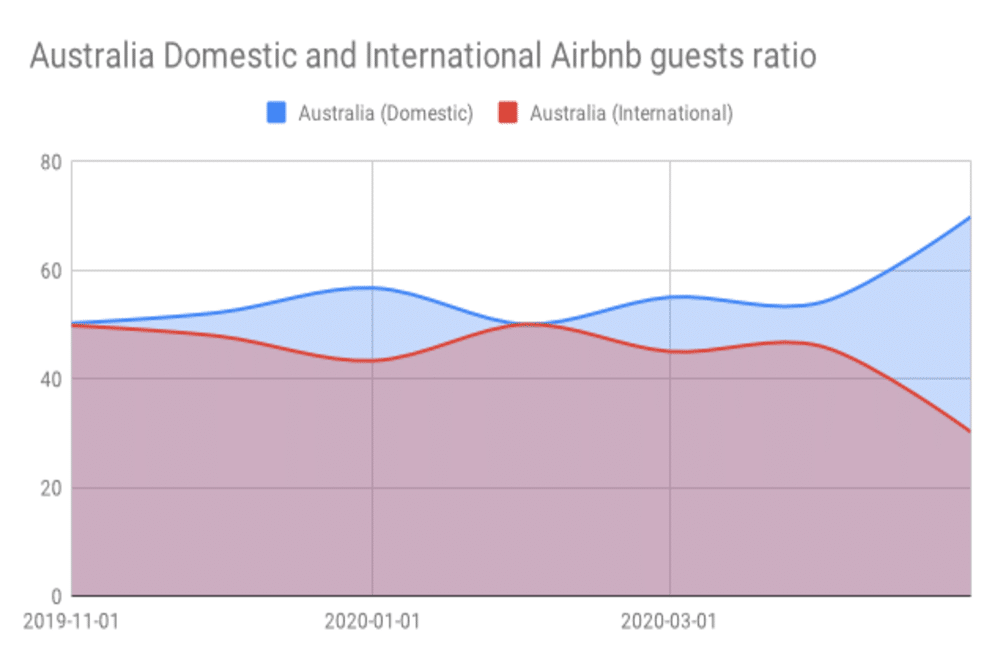
So if you’re a vacation rental owner or property manager in Portugal and have your listing in English only, then it’s time to add a Portuguese translation to your listings or even to your listing’s title. Currently, many countries are restricting international travelers, so make sure to tailor your listing for domestic travelers.
A final thought
The vacation rental and short-term rental industry has rapidly evolved despite the drastic impact the global pandemic has caused. However, we’re now starting to see an uptick on travel trends, especially with domestic travel and mid-term stays.
As a final note, consider using an Airbnb management software to streamline your daily operation, stay on top of your tasks, and have a better overview of all your bookings and calendars.
Have you personally noticed these trends in your area? Do you have other useful tips to make your vacation rentals stand out? Please share it in the comment section below!
About the author:

Jaeseok An has built an affordable and accurate analytics service for Airbnb hosts. Previously, he wrote codes for WhatsApp, Expedia and Facebook. He’s also an Airbnb Superhost based in London
